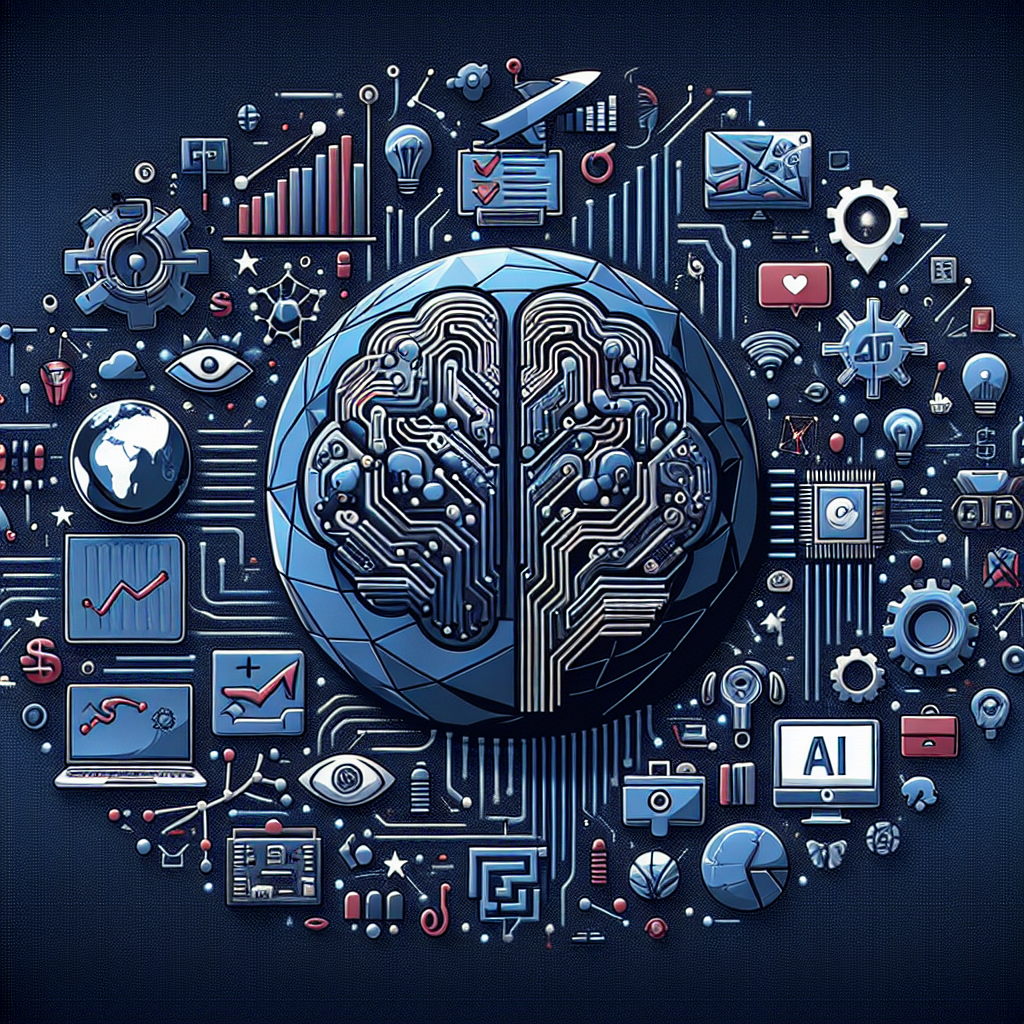Artificial General Intelligence (AGI) is a technology that has the potential to revolutionize businesses in every industry. AGI refers to a type of artificial intelligence that is capable of performing any intellectual task that a human can do. Unlike narrow AI, which is designed for specific tasks, AGI has the ability to learn and adapt to new situations, making it a game-changer for businesses everywhere.
The impact of AGI on businesses is expected to be profound. From streamlining operations to improving customer service, AGI has the potential to transform the way companies operate. In this article, we will explore the potential benefits of AGI for businesses and how it can be implemented to drive growth and success.
Benefits of AGI for Businesses
1. Increased Efficiency: One of the key benefits of AGI for businesses is the potential to increase efficiency. AGI can automate repetitive tasks, freeing up human employees to focus on more strategic activities. This can lead to cost savings and improved productivity, allowing businesses to operate more efficiently.
2. Improved Decision-Making: AGI has the ability to analyze large amounts of data and identify patterns that humans may not be able to see. This can help businesses make more informed decisions, leading to better outcomes and increased profitability. AGI can also provide real-time insights, allowing businesses to respond quickly to changing market conditions.
3. Enhanced Customer Service: AGI can be used to improve customer service by providing personalized recommendations and assistance. For example, AGI-powered chatbots can help customers with their inquiries and provide support round the clock. This can lead to higher customer satisfaction and loyalty, ultimately driving business growth.
4. Innovation and Creativity: AGI has the potential to drive innovation and creativity within businesses. By automating routine tasks, AGI can free up employees to focus on more creative endeavors. This can lead to the development of new products and services that can help businesses stay ahead of the competition.
5. Scalability: AGI can help businesses scale their operations more easily. By automating tasks that were previously done manually, businesses can expand their operations without significantly increasing their workforce. This can help businesses grow more quickly and efficiently.
Implementing AGI in Businesses
While the potential benefits of AGI for businesses are clear, implementing this technology can be challenging. Here are some key considerations for businesses looking to adopt AGI:
1. Data Quality: AGI relies on high-quality data to perform effectively. Businesses need to ensure that they have access to clean and accurate data to train their AGI systems. This may require investing in data collection and management processes to ensure the data is of high quality.
2. Talent and Skills: Implementing AGI requires a team of skilled professionals who understand how to develop and deploy AI systems. Businesses may need to invest in training programs to upskill their employees or hire new talent with the necessary expertise.
3. Regulatory Compliance: Businesses need to consider the regulatory implications of implementing AGI. Depending on the industry and the data being used, there may be legal requirements that need to be addressed to ensure compliance with data protection laws.
4. Integration with Existing Systems: AGI systems need to be integrated with existing business processes and systems to be effective. Businesses may need to invest in technology infrastructure to support the implementation of AGI and ensure seamless integration with other systems.
5. Monitoring and Evaluation: Once AGI systems are deployed, businesses need to monitor their performance and evaluate their effectiveness. This may require setting up key performance indicators (KPIs) to track the impact of AGI on business outcomes and making adjustments as needed.
Frequently Asked Questions about AGI
Q: What is the difference between AGI and narrow AI?
A: AGI refers to artificial intelligence that can perform any intellectual task that a human can do, while narrow AI is designed for specific tasks. AGI has the ability to learn and adapt to new situations, while narrow AI is limited to the tasks it was designed for.
Q: How can businesses benefit from AGI?
A: Businesses can benefit from AGI by increasing efficiency, improving decision-making, enhancing customer service, driving innovation and creativity, and enabling scalability.
Q: What are the key considerations for businesses looking to adopt AGI?
A: Businesses need to consider data quality, talent and skills, regulatory compliance, integration with existing systems, and monitoring and evaluation when implementing AGI.
Q: How can businesses ensure the ethical use of AGI?
A: Businesses can ensure the ethical use of AGI by developing clear guidelines and policies for its use, conducting regular audits to monitor compliance, and ensuring transparency in how AGI is used.
Q: What industries are likely to be most impacted by AGI?
A: Industries such as healthcare, finance, manufacturing, and retail are likely to be most impacted by AGI due to the potential for increased efficiency, improved decision-making, and enhanced customer service.
In conclusion, AGI has the potential to be a game-changer for businesses everywhere. By increasing efficiency, improving decision-making, enhancing customer service, driving innovation and creativity, and enabling scalability, AGI can help businesses achieve their goals and drive growth and success. However, implementing AGI requires careful consideration of factors such as data quality, talent and skills, regulatory compliance, integration with existing systems, and monitoring and evaluation. By addressing these considerations and following best practices, businesses can harness the power of AGI to transform their operations and stay ahead of the competition.

